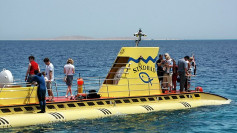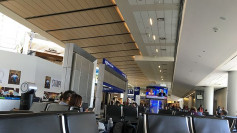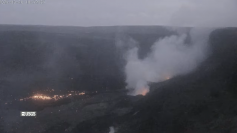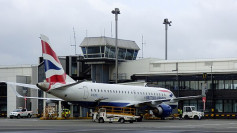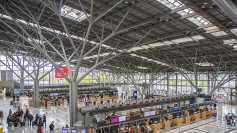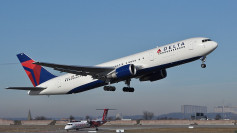A record-breaking wave of travelers in China for the country's Labor Day break was interrupted by bad weather, including thunderstorms in central and southern China that forced airlines to cancel flights Monday through Tuesday.
On Monday, the third day of the five-day Labor Day holiday, more than 2,600 flights across China were canceled. The cancellations disrupted the massive wave of air travelers for the holidays.
TravelSky Technology, the owner of travel booking app Umetrip, said a total of 2,613 flights were canceled on Monday night. The state-owned company said it expects more flights to be canceled or delayed due to bad weather.
Passengers that pre-booked tickets said the scene at major airports such as Beijing's Daxing International Airport and the Beijing Capital International Airport were "chaotic."
"Airport employee asked us to call the airplane company, who hasn't answered our call yet. And the airport did not give us any comfort during our waiting ...nor provided guidance for us," one passenger told reporters.
Trip.com Group said around 200 million trips were made by Chinese tourists so far this year. The company said Chinese travelers had missed the chance to go out earlier in the year - particularly during the Lunar New Year break, due to the coronavirus. For this reason, pent-up demand has reached a fever pitch, resulting in the surge of domestic tourism, the company said.
"This May Day holiday will see greater enthusiasm for long-distance travel across provinces in mainland China," Trip.com said.
This year's Labor Day break is the first long break in the country with significantly eased movement restrictions. In contrast, most of the world is still struggling to bring the virus under control, and allowing tourism is not yet their top priority.
Analysts at Hwabao Trust said travel confidence in China has greatly been boosted by the country's accelerated vaccination programs. Analysts said they expect roughly 300 million travelers, by land, sea and air, over the holiday period. Some tourists have reported taken extra days off from work to extend their vacations and to travel to far-flung domestic locations.

